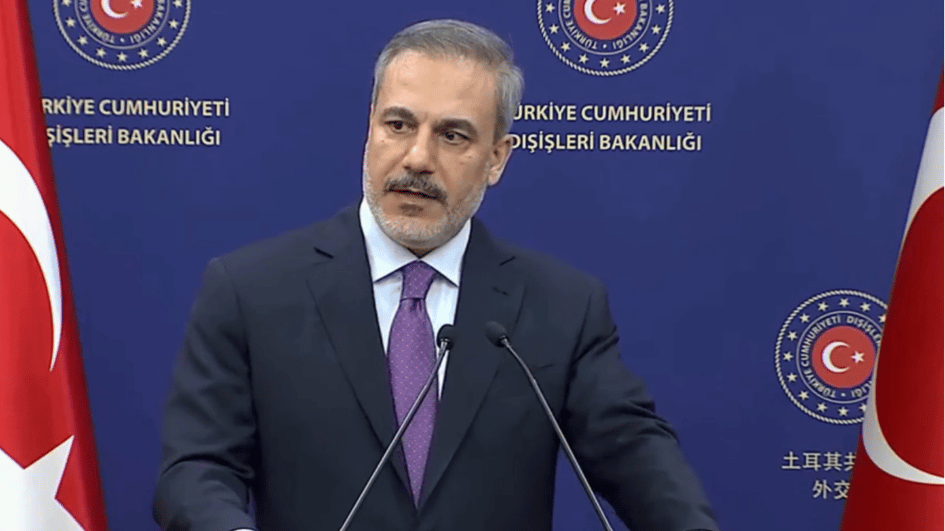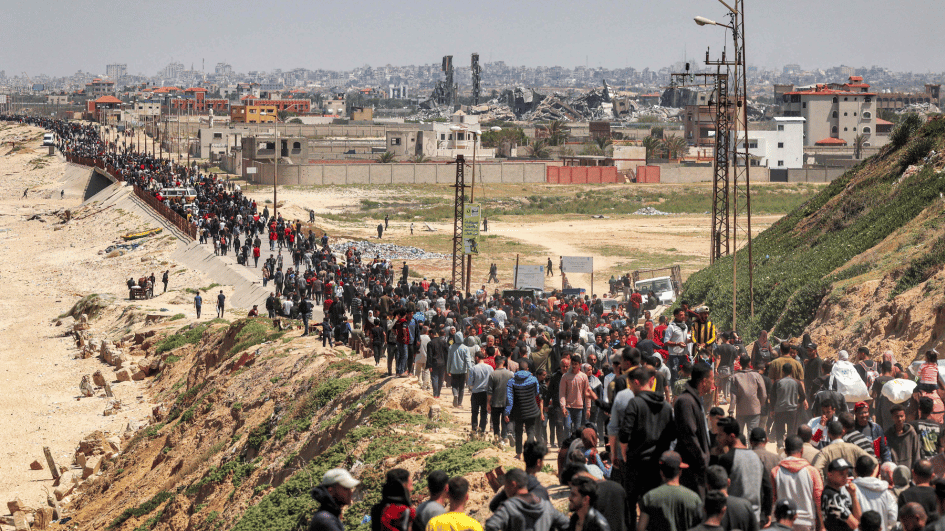Armenian ethnic cleansing as ‘de-Islamization’
Yesterday was the 97th anniversary of what Armenians call the “Great Catastrophe,” or the ethnic cleansing of Ottoman Armenians from Anatolia, their historical homeland, in 1915. Those who commemorated the tragedy included some Turks, such as the group that gathered in Istanbul’s Taksim Square.
With the slogan, “Let’s meet with the common hope that comes out of common sorrow,” these were a group of liberal activists who defy both the anti-Armenian enmity of Turkish nationalists, and the anti-Turkish bias of the Armenian Diaspora. And, most notably, they included not only secular liberals, who have always been at the forefront of “revisionism” on “the Armenian issue,” but also some Islamic figures.
One such figure was Hilal Kaplan, a young veiled lady who has degrees in sociology and writes an influential column in Yeni Şafak, a mainstream Islamist daily. She not only joined the Taksim commemoration, but also called on fellow Muslims to do the same in a significant piece she wrote the day before.
Titled “1915 as a move of de-Islamization,” Kaplan’s piece defined the ethnic cleansing of Ottoman Armenians as a part of secular Turkish nationalism’s onslaught against Islam. Islam, she reminded, was the very reason why Armenians had lived safely under Ottoman rule for centuries, for Islamic law had defined Christians as “People of the Book” with inalienable rights. That is why in 1915, when the nationalist Young Turk government decided to expel almost all Armenians to Syria, some Islamic opinion leaders, such as the famous mufti of Boğazlıyan, Abdullahzade Efendi, defied Istanbul’s orders and tried to protect the Armenians.
The “Turkism” of the Young Turks, Kaplan reminded, yearned for not a plural nation of many faiths and ethnicities, but an exclusive “Turkish homeland.” This led not only to the destruction of Armenians, but other tragedies of the Republican period, such as the ethnic cleansing of other Christian groups, or the Kurdish massacres in Dersim.
In her piece, Kaplan also called on all conservative Muslim Turks to revisit their respect for “our forefathers.” “Isn’t it worth asking,” she wrote, “whether your forefathers are those who formed and protected the multi-religious [Ottoman] structure, or those who brutally wasted it?”
In fact, Kaplan’s piece was only one example of a new rhetoric that is emerging among a new generation of liberal-minded Islamic intellectuals: They see the ethnic cleansing of Ottoman Armenians, along with all the oppression that non-Muslims of Turkey have faced in the past century, as an abomination against Islamic values. And they argue for what one can dub as “neo-Ottomanism,” which is basically a call for a pluralist Turkey of many faiths and ethnicities.
Of course, the historic accuracy of this argument can be debated. What is perhaps more important, however, is its political promises. For one of the reasons why liberal pluralism did not flourish in modern day Turkey is that its supporters remained an elite group of Westernized secular liberals, who often had the best of intentions, but also lacked the cultural connections with the common Turk.
However, Islamic liberals such as Hilal Kaplan speak within the Islamic values that are engrained in large segments of Turkish society. And that is why their message is more promising for building a more democratic, self-critical, and, I would say, virtuous Turkey.











